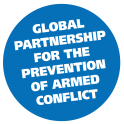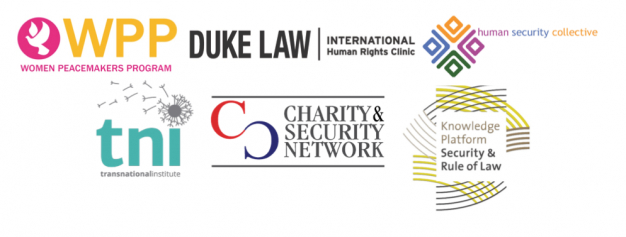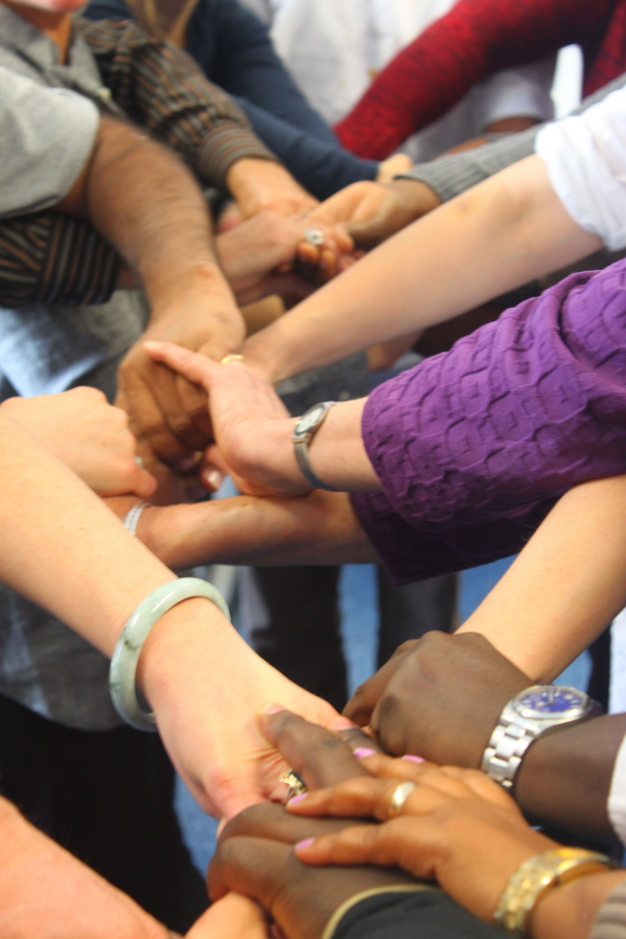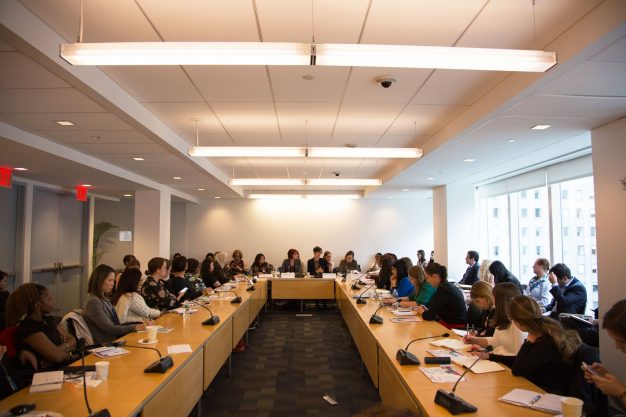Download the Press Release in PDF
THE HAGUE, 30 June - 2 July 2015 – Thirty international civil society representatives from over 25 countries working on Women, Peace & Security will come together in The Hague for the Global Consultation “Candid Voices From the Field: Obstacles to Delivering Transformative Change Within the Women, Peace & Security Agenda”, organized by the Women Peacemakers Program (WPP), the Global Partnership for the Prevention of Armed Conflict (GPPAC) and Cordaid. At the Global Consultation, participants from a diversity of backgrounds - nonviolent mobilizing, conflict prevention, disarmament, women’s peace lobby & advocacy, women’s leadership, masculinities - will engage in an in-depth reflection on the obstacles and opportunities of women’s leadership and participation in peacebuilding and strategize for future implementation of the Women, Peace and Security agenda.
Press invitation
On the evening of Tuesday June 30, there will be a Meet & Greet for the participants with over 10 representatives of Embassies based in The Hague, as well as representatives from the Ministry of Foreign Affairs and Dutch civil society. Journalists are most welcome.
15 years ago, the UN Security Council adopted landmark resolution 1325 (UNSCR 1325), recognizing women as active agents of change in conflict prevention and resolution; acknowledging the different impact of conflict on women and men; and underlining the need to include women in all aspects of peace processes. This year, the UN Security Council will review the implementation of UNSCR 1325, with UN Women conducting a supportive Global Study, under leadership of Radhika Choomaraswamy.
In the context of the international review of the Women, Peace & Security agenda, WPP, GPPAC and Cordaid launched a research and action project on the deep-rooted obstacles to women’s participation in peace efforts that have prevented the WPS Agenda delivering transformative change to increase women’s participation and leadership in peace and security. Based on the experiences of women’s organizations and civil society, initial research findings reveal the profound and persisting challenges women face in their efforts to build sustainable peace and security in conflict affected regions, post conflict and fragile settings.
The Global Consultation takes place within the framework of this project, to ground the research with concrete feedback from women and men peacebuilders in the field. The project will provide action-oriented recommendations for governments, international organizations, and NGOs how to support the successes of women and men peacebuilders and how to overcome the barriers these women and men encounter. Results will be fed into the Global Study on UNSCR 1325 and presented in New York in October 2015 to coincide with the anniversary of UNSCR 1325.
“Analyzing the deeper challenges for women and communities affected by armed conflict, by militarization and globalization moves the narratives, dialogues and analysis on women’s participation into different spaces and different domains. It enables us to look more openly and candidly about the failure of current approaches and scale of commitments needed to deliver peace and security for women, girls and men living in the margins of conflict, post conflict and fragile states. The opportunity to discuss and identify new ways to build more secure, inclusive and peaceful societies is important in the current context of increasing violent global conflict and its impact on the displacement of people and communities.” – Karen McMinn, researcher Action Research Project
“Over the last 15 years, we have seen multiple new documents aiming to advance women’s leadership in peace. Some us feel the political agenda has been lost in the amount of paper. We want to reclaim the agenda and let our voices be heard, shifting Women, Peace & Security from bureaucracy to political impact, as we envisioned 15 years ago.” – Netsai Mushonga, Participant & WPP International Advisory Council Member
Press invitation:
Tuesday June 30: press is welcome at the meet & greet with women peace activists and staff from embassies, MoFa and civil society. Contact WPP for more information.
Women Peacemakers Program: Sophie Schellens (Sophie@womenpeacemakersprogram.org)
GPPAC: Gizem Kilinç (g.kilinc@gppac.net)
Cordaid: Jos de Voogd (jos.de.voogd@cordaid.nl)
About the organizers
 The Women Peacemakers Program (WPP) has been established in 1997 to support and empower women peace activists. WPP actively advocates for the recognition of women’s experiences and peacebuilding contributions during war and conflict and the integration of a gender perspective in peacebuilding processes. The Women Peacemakers Program ’s vision is of a world where women and men work together as allies to build communities where people co-exist peacefully through active nonviolence. Its mission is to support the empowerment of gender-sensitive women and men for the transformation of conflict through active nonviolence. In 2014, WPP analyzed the multi-layered linkages between gender and militarism in relation to the persistent obstacles for a transformative approach to UNSCR 1325 implementation by organizing a Global Consultation on Gender & Militarism, as well as publishing it May 24 Pack around this theme. www.womenpeacemakersprogram.org
The Women Peacemakers Program (WPP) has been established in 1997 to support and empower women peace activists. WPP actively advocates for the recognition of women’s experiences and peacebuilding contributions during war and conflict and the integration of a gender perspective in peacebuilding processes. The Women Peacemakers Program ’s vision is of a world where women and men work together as allies to build communities where people co-exist peacefully through active nonviolence. Its mission is to support the empowerment of gender-sensitive women and men for the transformation of conflict through active nonviolence. In 2014, WPP analyzed the multi-layered linkages between gender and militarism in relation to the persistent obstacles for a transformative approach to UNSCR 1325 implementation by organizing a Global Consultation on Gender & Militarism, as well as publishing it May 24 Pack around this theme. www.womenpeacemakersprogram.org
 The Global Partnership for the Prevention of Armed Conflict (GPPAC) is a global civil society-led network which seeks to build an international consensus on peacebuilding and the prevention of violent conflict. It was established in 2003 in response to the call made by UN Secretary-General Kofi Annan for an international conference of civil society organizations working in the field of conflict prevention in his 2001 report Prevention of Armed Conflict. GPPAC builds civil society networks for peace by linking local, national, regional and global levels of action and by developing multi-stakeholder partnerships with key stakeholders including governments, the UN system and regional organizations. www.gppac.net
The Global Partnership for the Prevention of Armed Conflict (GPPAC) is a global civil society-led network which seeks to build an international consensus on peacebuilding and the prevention of violent conflict. It was established in 2003 in response to the call made by UN Secretary-General Kofi Annan for an international conference of civil society organizations working in the field of conflict prevention in his 2001 report Prevention of Armed Conflict. GPPAC builds civil society networks for peace by linking local, national, regional and global levels of action and by developing multi-stakeholder partnerships with key stakeholders including governments, the UN system and regional organizations. www.gppac.net
 Cordaid is one of the largest development organizations in the Netherlands and has a network of 634 partner organizations in more than thirty countries in Africa, Asia, the Middle East and Latin America. We support people in vulnerable regions and areas of conflict to build flourishing communities. Women are crucial contributors to their societies. They are the ones who cross ethnic and religious borders and who see to the healthy development of their children. They are the ones to advocate for education, employment and new opportunities for young people. Peace can only last when women are also involved. Cordaid supports the process of uniting local women and provides them with national and international stages - from Afghanistan to Colombia, Sudan to Sri Lanka - to consolidate their positions. Together they define their roles as well as strengthen their positions. www.cordaid.org
Cordaid is one of the largest development organizations in the Netherlands and has a network of 634 partner organizations in more than thirty countries in Africa, Asia, the Middle East and Latin America. We support people in vulnerable regions and areas of conflict to build flourishing communities. Women are crucial contributors to their societies. They are the ones who cross ethnic and religious borders and who see to the healthy development of their children. They are the ones to advocate for education, employment and new opportunities for young people. Peace can only last when women are also involved. Cordaid supports the process of uniting local women and provides them with national and international stages - from Afghanistan to Colombia, Sudan to Sri Lanka - to consolidate their positions. Together they define their roles as well as strengthen their positions. www.cordaid.org
12 Dec '17 Today, we are pleased to share with you the Conference Report “Financial Inclusion for Freedom and Security” by the Women Peacemakers Program, Duke Law International Human Rights Clinic, Human Security Collective, Transnational Institute, the Charity & Security Network, in cooperation with the Knowledge Platform Security and Rule of Law.

7 Dec '17 Today, on the 13th day of the 16 Days of Activism Against Gender Violence Campaign, we bring you the sad news that from 15 December onwards, the Women Peacemakers Program (WPP) will have to close its doors. We would like to ask for your time to read what has driven us to make this decision.

7 Nov '17 On Thursday, 26 October 2017, a side event entitled, “Pulling the Rug from Under Our Feet: What is the UNSCR 1325 Without Civil Society Freedoms?” was hosted on the margins of the 17th anniversary of United Nations Security Council Resolution (UNSCR) 1325. The event was hosted by the Women Peacemakers Program (WPP) and the Dutch Mission, in collaboration with Duke Law’s International Human Rights Clinic, Al-Hayat Center for Civil Society Development, Arab Women Organisation of Jordan, NOVACT, Free Sight Association, Iraqi Al-Amal Association, Women Empowerment Organisation, NGO Working Group on Women, Peace and Security and Women’s International League for Peace and Freedom. This article briefly looks at the main issues discussed during the event.
